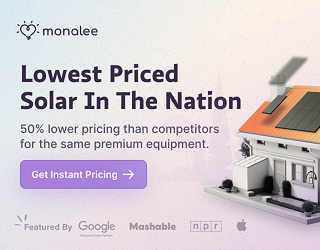Closing The Gender Gap In The Climate Change Space
March 8 is International Women’s Day, and despite being in the 21st century, we still have a ways to go to close the gender gap that exists in technical fields. We have come a long way for sure, but currently, women make up only 32% of the renewable energy workforce. The theme for this year’s International Women’s Day is innovation and technology for gender equality. Therefore, we are highlighting some of RMI’s work that is helping to close the gender gap in the climate change space.
Providing Training to Women Energy Leaders
RMI’s Energy Transition Academy (ETA) provides capacity development and peer networking opportunities for senior and mid-level energy professionals in utilities, renewable and distributed energy companies, regulatory bodies, and more. ETA’s fellowship program provides energy leaders with the skills and tools to permit, build, and regulate renewable energy systems, with an ancillary focus on related sectors such as transportation and buildings. The ETA elevates, amplifies, and supports the leadership of women in the energy sector. It also incorporates a gender focus across all its programs and activities.
The current fellowship includes a Caribbean cohort, representing 12 countries, and a Nigerian cohort, with women making up 27 percent of the total fellows. Female fellows include utility project managers from Nigeria and Guyana, a system development engineer from Saint Lucia, a utility technician engineer from Jamaica, a utility manager from Turks and Caicos, and more.
“My drive to succeed in this field is a result of the privilege to have seen and worked with highly intelligent and successful women in the energy field,” says Oluwaseun Mercy Adedeji, project manager for Eko Electricity Distribution Company in Nigeria. “Prior to that, I was always jittery upon hearing anything technical related. It is therefore important to encourage more women to participate in the energy field because it will encourage the next generation to consider energy as a profession.”
Fatima Haliru, power purchase lead for Ikeja Electric in Nigeria, agrees. “With a more diverse workforce and more women in higher-level positions, the energy industry can ensure innovation and creativity,” she says. “Additionally, having more women in prominent roles will increase the ability for female voices to be heard in the industry, and for their views and experiences to be represented.”
“With a more diverse workforce and more women in higher-level positions, the energy industry can ensure innovation and creativity.”
Providing Training to Women Energy Leaders
In 2022, RMI took over the Women in Renewable Energy (WIRE) Network, founded by Chelsea Clinton and the Clinton Climate Initiative, as part of the ETA. WIRE advocates for increased gender equality across the energy sector in government agencies, utilities, regulators, and private sector entities to eventually increase women’s representation in C-suites and boards, through ensuring a pipeline of motivated and experienced women. The WIRE Network was the first and is the only of its kind in the Caribbean, setting the standard for how to empower women in the energy sector, and it is expanding to other countries across the Global South. WIRE currently has 600 members from over 60 countries.
Every year, 12 women are selected to participate in WIRE’s flagship mentorship and networking program. The WIRE mentorship program runs for two years with a mentor-mentee structured cohort, with mentees becoming mentors for the second year to make a 20-person cohort. Women in senior leadership positions are paired with mid-early career women for guidance in the clean energy sector and advisement on how to make the most of their professional opportunities. Over eighty women have participated in the program so far, and alumni continue to have an impact beyond the network on the ground in their localities.
“With WIRE, you don’t just get a network, you get a lifetime subscription of a sisterhood who sees you, gets you, and stands by you,” says Shalenie Madho, a WIRE alumna from Trinidad and Tobago and energy engineering consultant based in Barbados.
Suzanne Shaw, a WIRE alumna from Jamaica and director and sustainable finance lead at The Leap Co, says, “The mentorship program prepared me for increasingly visible leadership roles with confidence to positively advance the energy sector.”
Empowering Women in the Energizing Agriculture Program
RMI and the Rural Electrification Agency with support from the Global Energy Alliance for People and Planet are supporting the productive use of distributed energy resources in agricultural value chains through the Energizing Agriculture Program (EAP). EAP helps communities use energy to solve agricultural problems and identifies and scales commercially viable agriculture-energy business models, specifically with solar microgrids.
A core component of the EAP is to ensure that agriculture-energy business models piloted through the project enable women to capture the social, economic, and environmental benefits of the value generated. Last year, RMI hosted a bootcamp to advance project design and establish collaboration across the energy and agricultural sectors. At this bootcamp, the team held a gender equity and social inclusion (GESI) session to build fluency and a shared understanding of the importance of gender considerations in project design. The cohort of participants aligned on a standard approach to incorporating GESI action plans through project implementation and proposed ideas to mainstream GESI in business model design.
